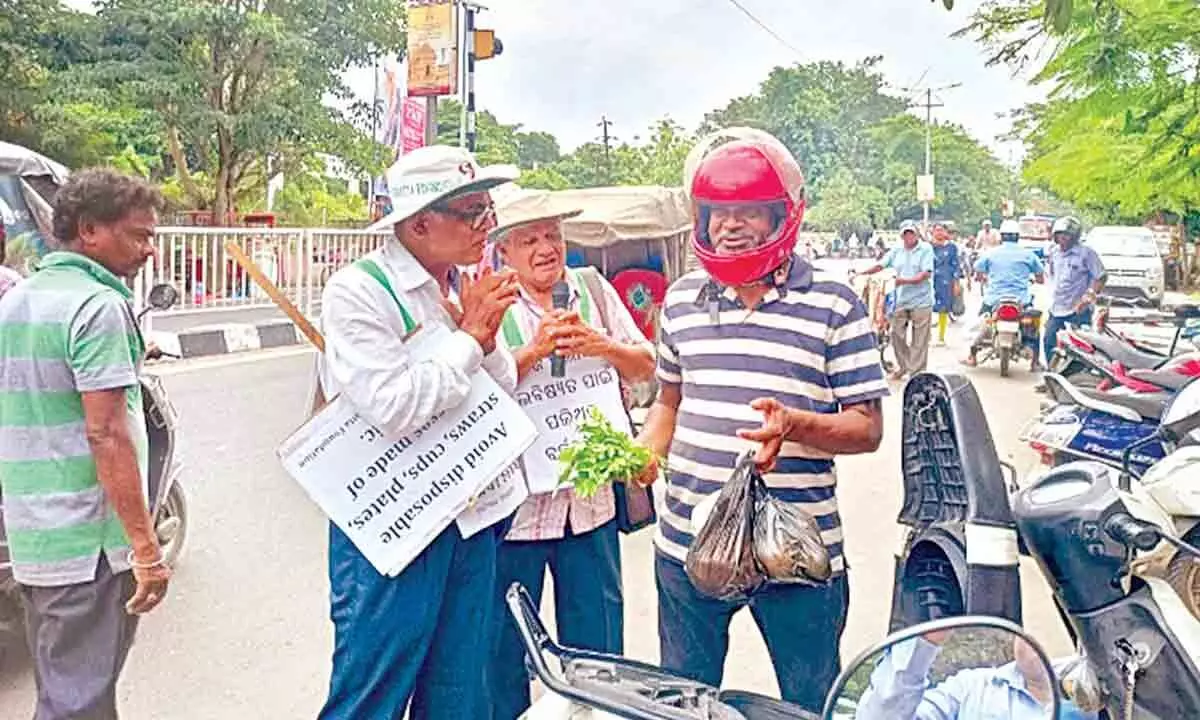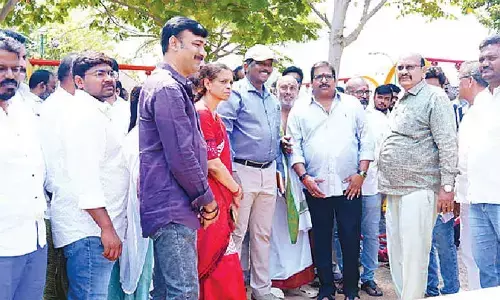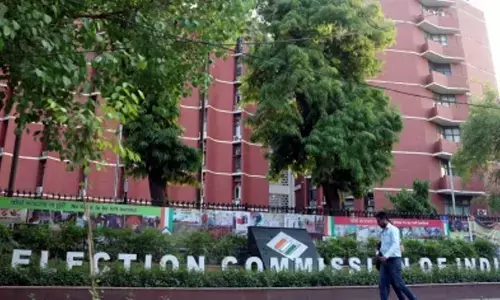Berhampur : 'Agyan Namaskar' movement against polythene

When the Union Government has decided to ban 19 identified single-use plastic from July 1, considering their adverse impact on the environment, Aryabhatta Foundation which is spearheading the campaign against polythene and one-time-use plastic including straw, plates and water bottles for the last decade, has started ‘Agyan Namaskar’ fortnight movement at different parts of Odisha since June 12.
When the Union Government has decided to ban 19 identified single-use plastic from July 1, considering their adverse impact on the environment, Aryabhatta Foundation which is spearheading the campaign against polythene and one-time-use plastic including straw, plates and water bottles for the last decade, has started ‘Agyan Namaskar’ fortnight movement at different parts of Odisha since June 12. The public awareness programme about the non-use of polythene prior to the implementation of the central government ban would last up to June 30.
Berhampur : When the Union Government has decided to ban 19 identified single-use plastic from July 1, considering their adverse impact on the environment, Aryabhatta Foundation which is spearheading the campaign against polythene and one-time-use plastic including straw, plates and water bottles for the last decade, has started 'Agyan Namaskar' fortnight movement at different parts of Odisha since June 12. The public awareness programme about the non-use of polythene prior to the implementation of the central government ban would last up to June 30.
Irrespective of age consideration the members and volunteers of the organisation say 'Agyan/Sir/ Madam Namaskar' to the users and request humbly with folded hands to carry a bag to the market instead of taking polythene carry bags back home. Even some septuagenarians appeal to the young boys and girls with folded hands. The people accept the request gladly and some feel ashamed of carrying a polythene bag. As a result, more than 80 per cent of the market-goers in Berhampur carry a bag with them instead of carrying polythene bags home, said Sudhir Rout Chairman Aryabhatta Foundation.
Some of the members and volunteers taking an active part in this 'Agyan Namaskar' fortnight movement said that the increasing amount of plastic usage in the world has become a niche headache for society. Plastic has invaded the highest peak of the Himalayas to the deepest spots in the ocean and is even found beneath the icebergs of the polar areas. Scientists have also found small plastic particles in the blood and lungs of the human body. Polythene wastes choke and clog the drainage system of human habitats resulting in artificial flooding during monsoon and unseasonal rains. Polythene wastes kill the fertility of the soil, pollute and obstruct the recharging of groundwater. Besides, stray cows and bulls fall prey to the polythene menace since these are not biodegradable, they said.
'Agyan Namaskar' launched from Ichhapur in Andhra Pradesh and some bordering areas of Odisha including Pustapur, Kedarpur, Muchhindri would cover about 200 villages and some urban and semi-urban areas in Odisha. We have already covered Bhubaneswar, Rourkela, Khurda, Puri, Pipili, Berhampur, Hinjili, Sikiri and many others, said Sudhir Rout.
Aryabhatta Foundation has been working to protect the environment for more than a decade planting and growing trees and appealing to the general public to do the same. It spreads the messages through Sabuja Ratha, human chain, Padyatra, cycle yatra, door-to-door campaigning, Parvesh Jattha in which the volunteers walk through villages and towns of Odisha and neighbouring Andhra, blowing conch cells and beating gongs to attract attention of the people.
In addition to planting trees at different places, it has created two village forests and tried to bring greenery back to thirteen hills in Ganjam through sowing seeds and planting trees.









